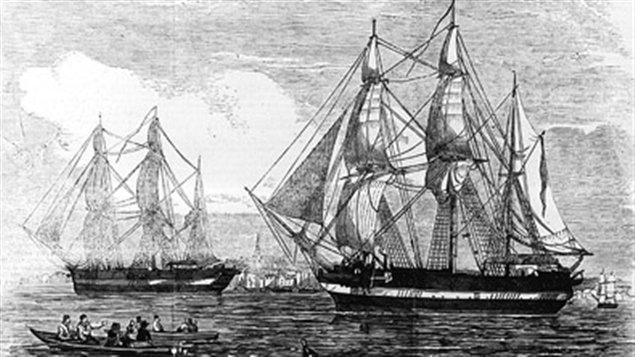In 1845, renowned polar explorer, Sir John Franklin left England with two specially-prepared ships and 129 crew heading toward the Canadian Arctic. They were attempting to discover a fabled Northwest Passage to the Orient. They were never seen again.
Over the decades, remnants of some crew and other small artifacts have been found, but in spite of dozens of searches, including a massive high-tech search by Canada last year, the two ships and Franklin’s grave have still not been found.

New research at the University of Western Ontario, suggests a major aspect of a long-held theory about the lost expedition is incorrect.
In 1984, the remains of three crew were analyzed and found to contain high levels of lead. It was presumed that lead solder used to seal the tins of food leached out, and along with lead piping for the ships water supply, is thought to have poisoned the crew weakening them and compromising their judgement.
Lead is toxic and symptoms of lead poisoning include confusion, which makes it an attractive explanation for some of the decisions made by Franklin and his crew after their ships were stuck in the ice, such as dragging heavy lifeboats over the tundra laden with non-essentials such as silverware.
Using new technology not available in the original 1984 analysis, Professor Ron Martin concluded that the lead was so widely distributed and to such an extent, that it simply couldn’t have been accumulated in the time the men were at sea. He said the distribution was uniformly spread, and not concentrated as it would be in a sudden increase such as had been thought.
Professor Martin’s team concluded that if Franklin and his men were suffering from lead poison, it began long before their fateful voyage.







For reasons beyond our control, and for an undetermined period of time, our comment section is now closed. However, our social networks remain open to your contributions.